A few weeks ago I posted on social media a picture of Davide Rebellin in his new Sovac-Natura4ever team strip for 2018; his 27th season as a professional.
I commented that he was a ‘remarkable man.’
Immediately I was informed that I was ‘glorifying a doper.’
When I responded by asking how he was any different to the pundits, TV commentators, self-styled fashion gurus and authors who have all fallen foul of the testers but are now accepted by the cycling community – no one could tell me.
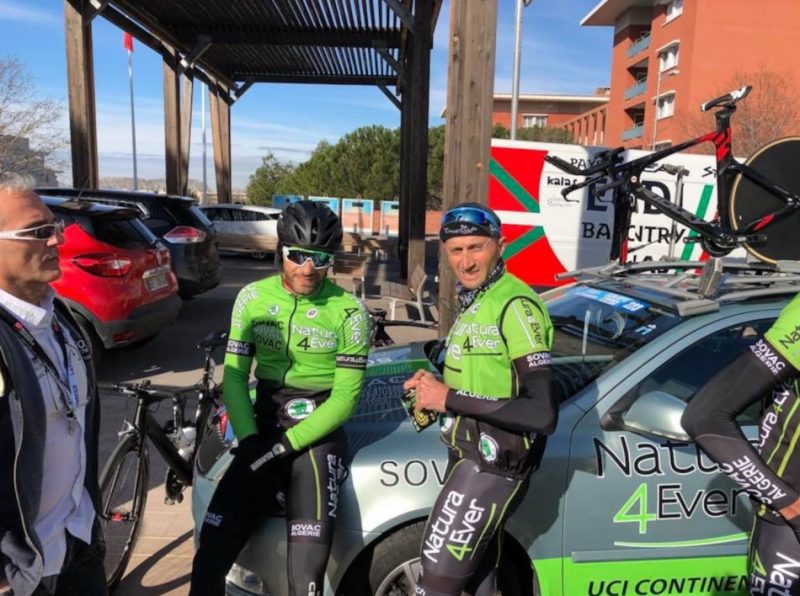
Former ‘cross star Barry Davies suggested that I organise an interview with the Italian; ‘good idea,’ I thought to myself.
And below you’ll see what the man had to say.
But some background, first.
Rebellin was a world champion in 1989 as a junior in the team time trial.
In 1991 he was silver medallist in the world amateur road race championships.
Since 1992 he’s won some 80 professional races including Liege-Bastogne-Liege, Fleche-Wallonne, Amstel, Zurich, San Sebastian, Henninger Turm, Tirreno-Adriatico, Paris-Nice and the Tour of the Mediterranean to name but the best known.
He took a silver medal in the Beijing Olympic road race but was subsequently declassed for returning a positive sample.
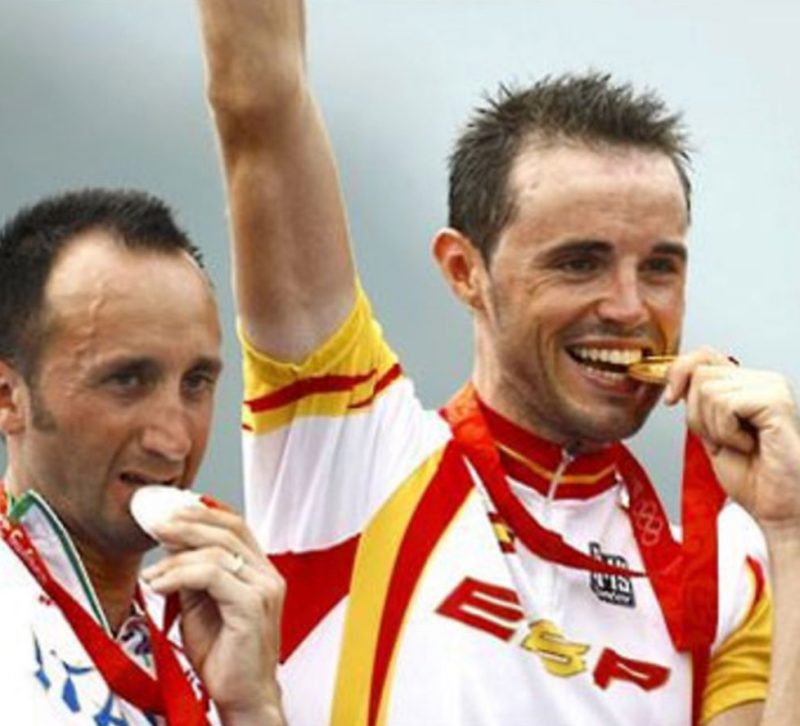
Davide was suspended and the Italian Federation tried to sue him and have him imprisoned for his misdemeanour – but he successfully defended himself against those potential punishments.
But he came back and is still racing, when I interviewed Pole, Tomasz Marczynski, a team mate of Rebellin’s at CCC a year or two ago he said of the Italian; ‘I don’t know many cyclists like him; he’s 100% professional at all times – a really good example for young riders.’
Thank you for agreeing to speak to us, Davide – we know Davide the cyclist, what about Davide the man?
“I only discovered myself as a “man” a few years ago.
“This seems quite strange when I think about it but I only used to see myself as a cyclist with no room for the man that I really am.
“With the tribulations of life I come to realise that beneath the cyclist, I was also a man, with other feelings than those linked to cycling.
“I have to give thanks to my wife for this, Fanfan who I met on the bike about eight years ago on my training roads around Monaco, we have been married since 2014.
“I respect my job, my metier, my passion, my schedule is entirely dedicated to my work; but I came to like myself as the man I am before liking myself as a cyclist, which helped me a lot to find my identity.”
What do you do away from the bike?
“I enjoy spending time in contact with Nature, the sea, mountains, animals, trees, flowers, the changing seasonal colours and quietness do me a lot of good, regenerating my energy.
“I also enjoy reading, drawing, but I don’t find enough time for these activities as training, racing, appointments and other commitments leave little free time for such pastimes.”
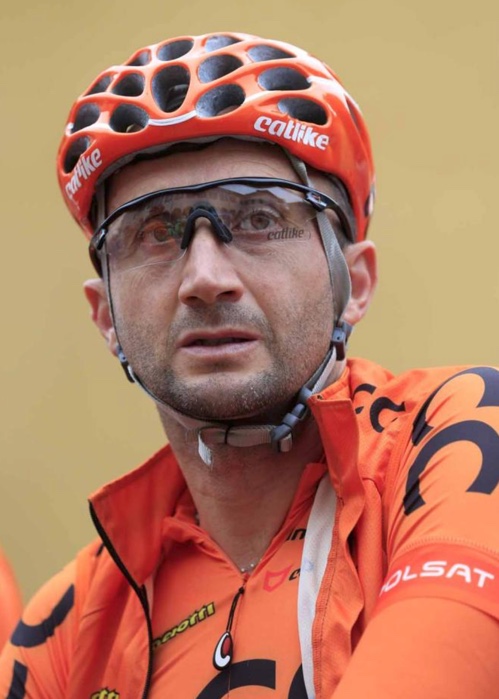
You considered the priesthood as a young man, is your faith still important to you?
“Faith has always been important to me even though I don’t attend Mass regularly but I remind myself everyday how lucky I am to be alive, to have a passion, to be in excellent health, to be surrounded with family and friends.
“I am grateful every morning and evening for such a privilege.
“It’s essential to appreciate what one has and to be fully grateful.
“This way of thinking gives me strength.”
Who were your role models as a young rider?
“When I was a young cyclist I used to admire Moser and Bugno.”
Where is your favourite place to race?
“I like Belgium and especially the Ardennes, where the Belgian Classics take place (Fleche Wallonne and Liège Bastogne Liège).
“These are my favourite races because they are well adapted to my abilities.
“ach time I participated in these races, I always felt intense and magical emotions.”
Are you a man for statistics – wins/podiums?
“I know I have won about 80 races (Cycling Archives website makes it 90 wins including his major amateur victories, ed.) during my professional career but concerning being on a podium, I’ve no idea how often.”
What is the longest period you’ve spent off the bike?
“When I was still an amateur, I had a bad cycling fall which damaged my dorsal colon and had to be immobilised in bed for about one month.
“In 2003 I also had a luxation on my left shoulder which had to be immobilised but I continued home training.
“After the cycling season it’s important to quit cycling for a while but it’s something I can’t do.
“I think I’ve never been more than three days without being on my bike.
“Cycling is part of my life in the same way as eating, drinking or sleeping.”
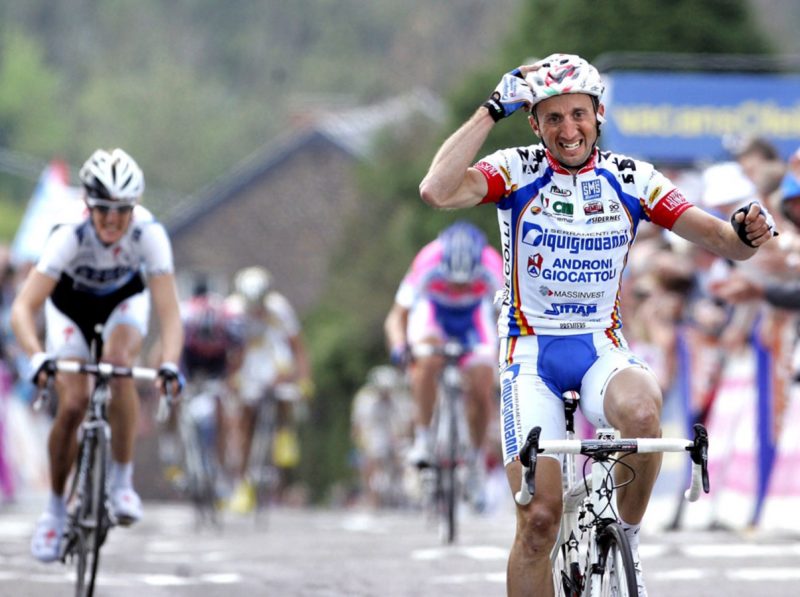
What’s been the most satisfying part of your career thus far?
“The victories in 2004 in the Ardennes Classics – the Fleche Wallonne, Liege-Bastogne-Liege and Amstel – to win the three classics in the same week gives one an immensely wonderful and strong feeling.”
Has there ever been a time you considered quitting?
“No, I try to listen to my body, my desires, my heart-felt hopes; this gives me so much force and energy, enthusiasm and determination to progress – I respect these emotions and continue on my way!
“My age is just a detail.
“The most important thing is to feel the love for one’s work; the body will follow with all its energy.”
What have been the big disappointments in your life?
“The loss of my Olympic Medal which was so unjustly taken from me.
“But I prefer to concentrate on the good times; the not so good times have served to reinforce my faith and so to reinforce me.
“The suspension for two years was a great trial for me because it was so unjust.
“And the seven years of legal action against me were a terrible ordeal.”
(As wikipedia explains: [After the loss of his Olympic medal] The Italian National Olympic Committee subsequently took Rebellin to court, seeking €500,000 in damages and a twelve-month custodial sentence under an Italian law passed in 2000 allowing for athletes who dope to be jailed for up to three years. However, in 2015 a court in Padua ruled that he had no criminal case to answer, in addition to clearing him of charges of tax evasion.)
“But I always told myself that sooner or later justice would be done.
“This proved to be the case when admissions were made about grave and unexplained mistakes made during the legal proceedings against me – and when my innocence was finally recognised.
“The damage has been done but justice had the final word and this liberation was essential for me and one in which I always believed.”
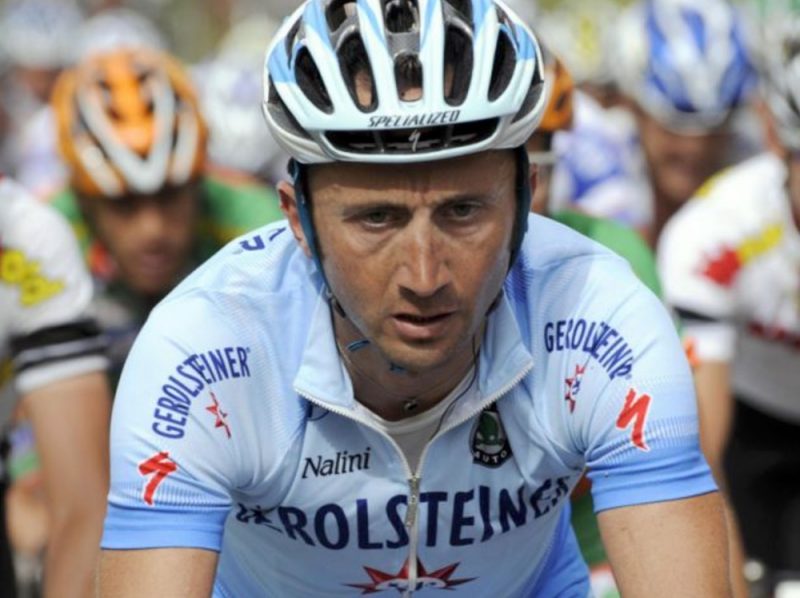
What are the biggest changes you’ve witnessed in the peloton during your long career?
“During the 27 years of my professional career, I have seen many things evolve both in a good and not so good way.
“The most important evolution has been with technology of the velo, aerodynamics, clothing, athletic preparation and diet.”
And frames-wise?
“The introduction of carbon, this has allowed bikes to perform to their full potential.”
Training – do you still have a coach?
“Concerning physical preparation, it’s a long time since I have had a coach.
“I know myself well and try to adapt my training programmes according to my objectives.
“I know what I need to improve and give even more importance to rest, sleep and recuperation.
“I am satisfied with how I train but it’s essential that my resting periods are sufficient too – perhaps even more so than physical training.
“The human organism can only function correctly if it is profoundly rested and so completely ready to give do its best.”
Do you have to pay more attention to diet now you’re getting older?
“Since I have adopted a gluten-free diet (gluten-free, vegetarian with a tendency to vegan) I have been able to control my weight more easily while eating more and more copiously.
“My system digests better and has added resistance against viruses.
“For the last three months I’ve been taking the complimentary aliments from Natura4ever; they’re totally natural with ingredients such as curcuma, piperine, quercetine, which have Great Italian RidersGreanti-infammatory and protective properties (Naturagold), but also Krill Oil (Natura Krill), rich in Omega 3 and a powerful antioxidant, NaturaBlue Sport which increases one’s energy and NaturaBlue original which helps with the recuperation and general well being of the system.
“You can obtain more information concerning these products here.”
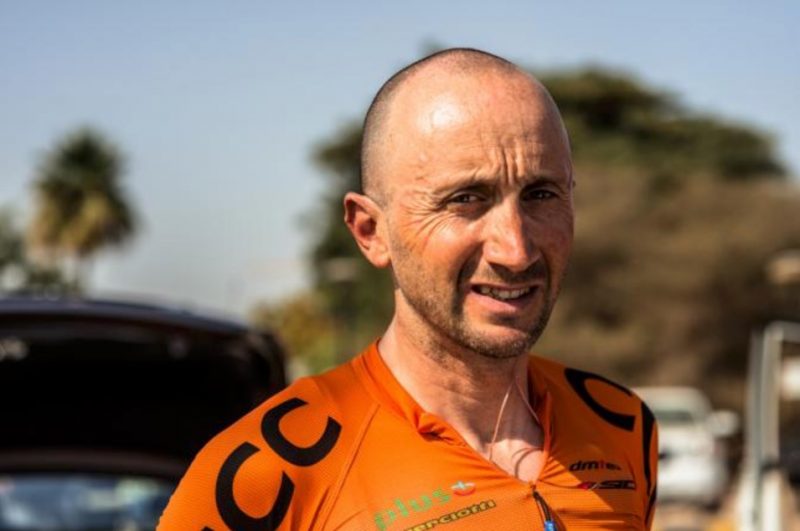
Do feel you get respect from the younger riders?
“Yes, there is respect between us.
“The younger generation have seen me win races when they were still kids and often tell me so in a very respectful way.
“I appreciate this and thank them warmly.
“The not-so-young pros often ask how I find enough motivation and energy to continue; I tell them that I live in the present and am still fit and even stronger than before.”
How do you feel the Media treats you?
“When one comes up against difficulties, the media are cruel and like to modify reality thinking that their articles will be more successful but luckily more conscientious and honest journalists do exist who deal only with the truth even if this represents less of a ‘scoop’ for them.”
Which of your rivals over the years do you have most respect for?
“I respect every one of my cycling colleagues; we are all aboard the same boat and I know how wonderful but also how extremely difficult our work is.
“The cyclist I most admire is perhaps Valverde, a rider capable of winning every kind of race, which is rare, he can win one-day and stage races and do so throughout a whole season.”
What advice would you give young riders starting out?
“Love your work, and in your leisure time maintain your self discipline, remain conscientious and believe in yourself.
“Give the best you can and remember how fortunate you are to be doing what you are – and don’t think about the difficulties and sacrifices!
“It is a wonderful opportunity and a privilege to be a professional cyclist.”
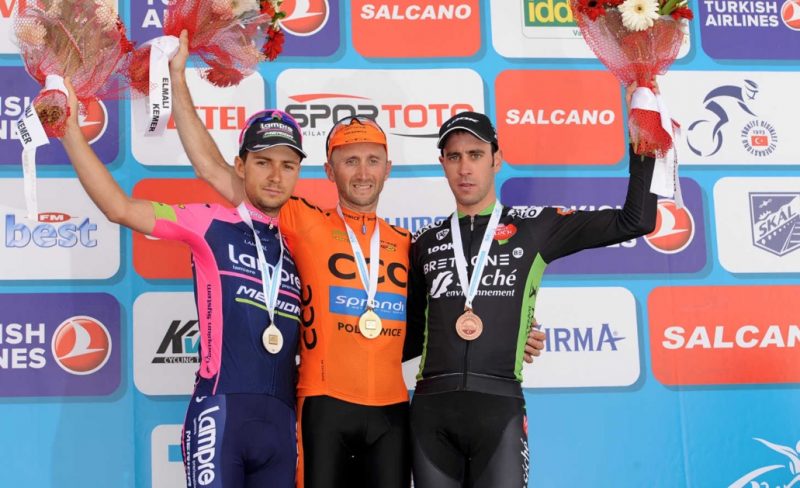
When you finally stop racing, what will you do?
“I do already organise cyclist training courses (the next series will be shown on my site www.daviderebellin.it) under the category REBELCAMP and when my career as a cyclist is finished I will have more time to devote to this activity and to continue to develop my clothing and accessory line.”
Are there things you’d still like to achieve on the bike?
“My dream would to be a World Champion and to race once again in the Belgian Classics, Liège and Flèche Wallonne – the races so close to my heart!”



